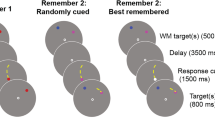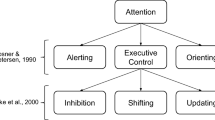Abstract
Neuroimaging researchers tacitly assume that body-position scantily affects neural activity. However, whereas participants in most psychological experiments sit upright, many modern neuroimaging techniques (e.g., fMRI) require participants to lie supine. Sparse findings from electroencephalography and positron emission tomography suggest that body position influences cognitive processes and neural activity. Here we leverage multi-postural magnetoencephalography (MEG) to further unravel how physical stance alters baseline brain activity. We present resting-state MEG data from 12 healthy participants in three orthostatic conditions (i.e., lying supine, reclined at 45°, and sitting upright). Our findings demonstrate that upright, compared to reclined or supine, posture increases left-hemisphere high-frequency oscillatory activity over common speech areas. This proof-of-concept experiment establishes the feasibility of using MEG to examine the influence of posture on brain dynamics. We highlight the advantages and methodological challenges inherent to this approach and lay the foundation for future studies to further investigate this important, albeit little-acknowledged, procedural caveat.




Similar content being viewed by others
References
Agam, Y., Hämäläinen, M. S., Lee, A. K. C., Dyckman, K. a, Friedman, J. S., Isom, M., et al. (2011). Multimodal neuroimaging dissociates hemodynamic and electrophysiological correlates of error processing. Proceedings of the National Academy of Sciences of the United States of America, 108(42), 17556–17561. doi:10.1073/pnas.1103475108
Alperin, N., Hushek, S. G., Lee, S. H., Sivaramakrishnan, A., & Lichtor, T. (2005). MRI study of cerebral blood flow and CSF flow dynamics in an upright posture: the effect of posture on the intracranial compliance and pressure. Acta Neurochirurgica. Supplement, 95, 177–181 http://www.ncbi.nlm.nih.gov/pubmed/16463846.
Bastiaansen, M. C. M., & Knösche, T. R. (2000). Tangential derivative mapping of axial MEG applied to event-related desynchronization research. Clinical Neurophysiology, 111, 1300–1305. doi:10.1016/S1388-2457(00)00272-8.
Berridge, C. W., & Waterhouse, B. D. (2003). The locus coeruleus-noradrenergic system: modulation of behavioral state and state-dependent cognitive processes. Brain research. Brain Research Reviews, 42(1), 33–84 http://www.ncbi.nlm.nih.gov/pubmed/12668290.
Birn, R. M., Smith, M. A., Jones, T. B., & Bandettini, P. A. (2008). The respiration response function: the temporal dynamics of fMRI signal fluctuations related to changes in respiration. NeuroImage, 40(2), 644–654. doi:10.1016/j.neuroimage.2007.11.059.
Brookes, M., Woolrich, M., Luckhoo, H., Price, D., Hale, Stephenson, M., et al. (2011). Investigating the electrophysiological basis of resting state networks using magnetoencephalography. Proceedings of the National Academy of Sciences of the United States of America, 108(40), 16783–16788. doi:10.1073/pnas.1112685108.
Chang, L.-J., Lin, J.-F., Lin, C.-F., Wu, K.-T., Wang, Y.-M., & Kuo, C.-D. (2011). Effect of body position on bilateral EEG alterations and their relationship with autonomic nervous modulation in normal subjects. Neuroscience Letters, 490(2), 96–100. doi:10.1016/j.neulet.2010.12.034.
Cole, R. J. (1989). Postural baroreflex stimuli may affect EEG arousal and sleep in humans. Journal of Applied Physiology, 67(6), 2369–2375 http://www.ncbi.nlm.nih.gov/pubmed/2606843.
De Pasquale, F., Della Penna, S., Snyder, A. Z., Lewis, C., Mantini, D., Marzetti, L., et al. (2010). Temporal dynamics of spontaneous MEG activity in brain networks. Proceedings of the National Academy of Sciences of the United States of America, 107(13), 6040–6045. doi:10.1073/pnas.0913863107.
Deco, G., Jirsa, V. K., & McIntosh, A. R. (2011). Emerging concepts for the dynamical organization of resting-state activity in the brain. Nature reviews. Neuroscience, 12(1), 43–56. doi:10.1038/nrn2961.
Goncharova, I. I., McFarland, D. J., Vaughan, T. M., & Wolpaw, J. R. (2003). EMG contamination of EEG: Spectral and topographical characteristics. Clinical Neurophysiology, 114(9), 1580–1593. doi:10.1016/S1388-2457(03)00093-2.
Gross, J., Baillet, S., Barnes, G. R., Henson, R. N., Hillebrand, A., Jensen, O., et al. (2013). Good practice for conducting and reporting MEG research. NeuroImage, 65, 349–363. doi:10.1016/j.neuroimage.2012.10.001.
Hillebrand, A., & Barnes, G. R. (2002). A quantitative assessment of the sensitivity of whole-head MEG to activity in the adult human cortex. NeuroImage, 16(3 Pt 1), 638–650. doi:10.1006/nimg.2002.1102.
Jensen, O., Kaiser, J., & Lachaux, J.-P. (2007). Human gamma-frequency oscillations associated with attention and memory. Trends in Neurosciences, 30(7), 317–324. doi:10.1016/j.tins.2007.05.001.
Johnson, B. W., Crain, S., Thornton, R., Tesan, G., & Reid, M. (2010). Measurement of brain function in pre-school children using a custom sized whole-head MEG sensor array. Clinical Neurophysiology, 121(3), 340–349. doi:10.1016/j.clinph.2009.10.017.
Jones, D. T., Vemuri, P., Murphy, M. C., Gunter, J. L., Senjem, M. L., Machulda, M. M., et al. (2012). Non-stationarity in the “resting brain’s” modular architecture. PloS one, 7(6), e39731. doi:10.1371/journal.pone.0039731.
Lei, X., Xu, P., Luo, C., Zhao, J., Zhou, D., & Yao, D. (2011). fMRI functional networks for EEG source imaging. Human Brain Mapping, 32(7), 1141–1160. doi:10.1002/hbm.21098.
Lei, X., Hu, J., & Yao, D. (2012). Incorporating FMRI functional networks in EEG source imaging: a Bayesian model comparison approach. Brain Topography, 25(1), 27–38. doi:10.1007/s10548-011-0187-9.
Lipnicki, D. M., & Byrne, D. G. (2005). Thinking on your back: solving anagrams faster when supine than when standing. Brain research. Cognitive Brain Research, 24(3), 719–722. doi:10.1016/j.cogbrainres.2005.03.003.
Lipnicki, D. M., & Byrne, D. G. (2008). An effect of posture on anticipatory anxiety. The International Journal of Neuroscience, 118(2), 227–237. doi:10.1080/00207450701750463.
Lundström, J. N., Boyle, J. A., & Jones-Gotman, M. (2008). Body position-dependent shift in odor percept present only for perithreshold odors. Chemical Senses, 33(1), 23–33. doi:10.1093/chemse/bjm059.
Mohrman, D. E., & Heller, L. J. (2003). Cardiovascular Physiology. New York: Lange Medical Books/McGraw-Hill.
Moradi, F., Liu, L. C., Cheng, K., Waggoner, R. A., Tanaka, K., & Ioannides, A. A. (2003). Consistent and precise localization of brain activity in human primary visual cortex by MEG and fMRI. NeuroImage, 18(3), 595–609. doi:10.1016/S1053-8119(02)00053-8.
Muthukumaraswamy, S. D. (2013). High-frequency brain activity and muscle artifacts in MEG/EEG: a review and recommendations. Frontiers in Human Neuroscience, 7(April), 138. doi:10.3389/fnhum.2013.00138.
Niessing, J., Ebisch, B., Schmidt, K. E., Niessing, M., Singer, W., & Galuske, R. A. W. (2005). Hemodynamic signals correlate tightly with synchronized gamma oscillations. Science (New York, N.Y.), 309(5736), 948–951. doi:10.1126/science.1110948.
Nir, Y., Fisch, L., Mukamel, R., Gelbard-Sagiv, H., Arieli, A., Fried, I., & Malach, R. (2007). Coupling between Neuronal Firing Rate, Gamma LFP, and BOLD fMRI Is Related to Interneuronal Correlations. Current Biology, 17, 1275–1285. doi:10.1016/j.cub.2007.06.066.
Okada, Y. C., Wu, J., & Kyuhou, S. (1997). Genesis of MEG signals in a mammalan CNS sructure. Electroencephalography and Clinical Neurophysiology, 103, 474–485.
Okamoto, M., Dan, H., Sakamoto, K., Takeo, K., Shimizu, K., Kohno, S., et al. (2004). Three-dimensional probabilistic anatomical cranio-cerebral correlation via the international 10-20 system oriented for transcranial functional brain mapping. NeuroImage, 21(1), 99–111. doi:10.1016/j.neuroimage.2003.08.026.
Ouchi, Y., Okada, H., Yoshikawa, E., Futatsubashi, M., & Nobezawa, S. (2001). Absolute Changes in Regional Cerebral Blood Flow in Association with Upright Posture in. Journal of Nuclear Medicine, 42(5), 707–712.
Ouchi, Y., Yoshikawa, E., Kanno, T., Futatsubashi, M., Sekine, Y., Okada, H., et al. (2005). Orthostatic posture affects brain hemodynamics and metabolism in cerebrovascular disease patients with and without coronary artery disease: a positron emission tomography study. NeuroImage, 24(1), 70–81. doi:10.1016/j.neuroimage.2004.07.044.
Poghosyan, V., & Ioannides, A. A. (2007). Precise mapping of early visual responses in space and time. NeuroImage, 35(2), 759–770. doi:10.1016/j.neuroimage.2006.11.052.
Power, J. D., Barnes, K. A., Snyder, A. Z., Schlaggar, B. L., & Petersen, S. E. (2012). Spurious but systematic correlations in functional connectivity MRI networks arise from subject motion. NeuroImage, 59(3), 2142–2154. doi:10.1016/j.neuroimage.2011.10.018.
Ramon, C., Schimpf, P., Haueisen, J., Holmes, M., & Ishimaru, A. (2004). Role of soft bone, CSF and gray matter in EEG simulations. Brain Topography, 16(4), 245–248 http://www.ncbi.nlm.nih.gov/pubmed/15379221.
Rau, H., & Elbert, T. (2001). Psychophysiology of arterial baroreceptors and the etiology of hypertension. Biological Psychology, 57(1-3), 179–201 http://www.ncbi.nlm.nih.gov/pubmed/11454439.
Raz, A., Lieber, B., Soliman, F., Buhle, J., Posner, J., Peterson, B. S., & Posner, M. I. (2005). Ecological nuances in functional magnetic resonance imaging (fMRI): psychological stressors, posture, and hydrostatics. NeuroImage, 25(1), 1–7. doi:10.1016/j.neuroimage.2004.11.015.
Rehder, K. (1998). Postural changes in respiratory function. Acta Anaesthesiologica Scandinavica. Supplementum, 113, 13–16 http://www.ncbi.nlm.nih.gov/pubmed/9932113.
Rice, J. K., Rorden, C., Little, J. S., & Parra, L. C. (2013). Subject position affects EEG magnitudes. NeuroImage, 64, 476–484. doi:10.1016/j.neuroimage.2012.09.041.
Shmuel, A., & Leopold, D. A. (2008). Neuronal correlates of spontaneous fluctuations in fMRI signals in monkey visual cortex: Implications for functional connectivity at rest. Human Brain Mapping, 29(7), 751–761. doi:10.1002/hbm.20580.
Spironelli, C., & Angrilli, A. (2011). Influence of body position on cortical pain-related somatosensory processing: an ERP study. PloS one, 6(9), e24932. doi:10.1371/journal.pone.0024932.
Stolk, A., Todorovic, A., Schoffelen, J. M., & Oostenveld, R. (2013). Online and offline tools for head movement compensation in MEG. NeuroImage, 68, 39–48. doi:10.1016/j.neuroimage.2012.11.047.
Storey, J. D. (2002). A direct approach to false discovery rates. Journal of the Royal Statistical Society: Series B (Statistical Methodology), 64(3), 479–498. doi:10.1111/1467-9868.00346.
Tadel, F., Baillet, S., Mosher, J. C., Pantazis, D., & Leahy, R. M. (2011). Brainstorm: a user-friendly application for MEG/EEG analysis. Computational Intelligence and Neuroscience, 2011, 879716. doi:10.1155/2011/879716.
Thibault, R. T., Lifshitz, M., Jones, J. M., & Raz, A. (2014). Posture alters human resting-state. Cortex, 58, 199–205. doi:10.1016/j.cortex.2014.06.014.
Vorwerk, J., Cho, J.-H., Rampp, S., Hamer, H., Knösche, T. R., & Wolters, C. H. (2014). A guideline for head volume conductor modeling in EEG and MEG. NeuroImage, 100, 590–607. doi:10.1016/j.neuroimage.2014.06.040.
Wendel, K., Narra, N. G., Hannula, M., Kauppinen, P., & Malmivuo, J. (2008). The influence of CSF on EEG sensitivity distributions of multilayered head models. IEEE Transactions on Bio-medical Engineering, 55(4), 1454–1456. doi:10.1109/TBME.2007.912427.
Westfall, P., & Tobias, R. (1999). Advances in multiple comparison and multiple test using the SAS System. In Proceedings of the 24th Annual SAS Users Group International Conference.
Wolters, C. H., Anwander, A., Tricoche, X., Weinstein, D., Koch, M. A., & MacLeod, R. S. (2006). Influence of tissue conductivity anisotropy on EEG/MEG field and return current computation in a realistic head model: A simulation and visualization study using high-resolution finite element modeling. NeuroImage, 30, 813–826. doi:10.1016/j.neuroimage.2005.10.014.
Xiang, J., Luo, Q., Kotecha, R., Korman, A., Zhang, F., Luo, H., et al. (2014). Accumulated source imaging of brain activity with both low and high-frequency neuromagnetic signals. Frontiers in Neuroinformatics, 8(May), 57. doi:10.3389/fninf.2014.00057.
Xu, P., Huang, R., Wang, J., Van Dam, N. T., Xie, T., Dong, Z., et al. (2014). Different topological organization of human brain functional networks with eyes open versus eyes closed. NeuroImage, 90, 246–255. doi:10.1016/j.neuroimage.2013.12.060.
Yan, C., Liu, D., He, Y., Zou, Q., Zhu, C., Zuo, X., et al. (2009). Spontaneous brain activity in the default mode network is sensitive to different resting-state conditions with limited cognitive load. PloS one, 4(5), e5743. doi:10.1371/journal.pone.0005743.
Acknowledgments
Dr. Amir Raz acknowledges funding from the Canada Research Chair program, Discovery and Discovery Acceleration Supplement grants from the Natural Sciences and Engineering Research Council of Canada (NSERC), Canadian Institutes of Health Research, and the BIAL Foundation. Robert T. Thibault acknowledges a Fonds de recherche du Québec - Nature et technologies (FRQNT) graduate scholarship and an Alexander Graham Bell Canada Graduate Scholarship from NSERC. Michael Lifshitz acknowledges a Francisco J. Varela Research Award from the Mind and Life Institute and a Vanier Canada Graduate Scholarship from NSERC.
Conflict of interest
Robert T. Thibault, Michael Lifshitz, and Amir Raz declare that they have no conflict of interest.
Informed consent
All procedures followed were in accordance with the ethical standards of the responsible committee on human experimentation (institutional and national) and with the Helsinki Declaration of 1975, and the applicable revisions at the time of the investigation. Informed consent was obtained from all participants included in the study.
Author information
Authors and Affiliations
Corresponding author
Rights and permissions
About this article
Cite this article
Thibault, R.T., Lifshitz, M. & Raz, A. Body position alters human resting-state: Insights from multi-postural magnetoencephalography. Brain Imaging and Behavior 10, 772–780 (2016). https://doi.org/10.1007/s11682-015-9447-8
Published:
Issue Date:
DOI: https://doi.org/10.1007/s11682-015-9447-8




